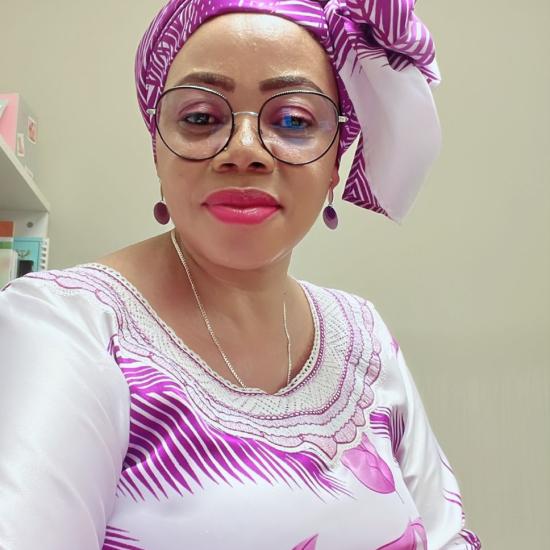Gender and diversity
management are crucial for inclusive workplace

Mampurane Caron Kgomo is a strong advocate for the importance of gender and diversity management in creating an inclusive workplace and society.
Currently working as a Deputy Director for Gen- der within the Gender and Diversity Management Unit at the Department of International Relations and Cooperation (DIRCO), she is dedicated to advancing these values in her role.
She spoke to Public Sector Manager magazine as South Africa joins the global community in marking World Day of Social Justice, which is commemorated annually on 20 February and recognises the need to promote efforts to tackle issues such as poverty, exclusion, employment, gender equity and access to social well-being and justice for all.
“Our primary goal is to promote gender equity and diversity management within the DIRCO. A diversified workplace is more representative of society, which is vital for effective governance,” she said.
The directorate is also responsible for developing gender policies pertaining to women's rights, youth development, and persons living with disabilities.
The department continuously assesses its strategies and develops interventions that foster a more inclusive environment, ensuring that it truly embodies the values of equity and diversity that represents South Africa.
In her current role, Kgomo is responsible for overseeing the implementation of national gender policies, ensuring their integration into departmental strategic planning.
She is tasked with the development of policy evaluations to ensure that the department's gender and women's empowerment policies are consistent with national government policies.
Kgomo also leads efforts to develop education and training programmes and gender awareness, monitor departmental projects for alignment with gender policies and assist in the management of the unit's operations.
A substantial portion of her routine responsibilities involves evaluating the department's adherence to policies regarding diversity and inclusion.
“I collaborate closely with in- ternal units to provide them with guidance on how to comply with employment equity objectives in areas such as deployment, training and appointments,” she explained.
Contributing to national development
Her work saw her being nominated as a member of a committee that was established by the Department of Public Service and Administration to aid in the drafting of the new Code of Good Practice on the Prevention and Elimination of Harassment in the Workplace.
“This opportunity has afforded me invaluable insights, which have enabled me to more effectively evaluate and fortify our departmental policies. As- sistance in the development of standard operating procedures for the management of sexual harassment has been one of my most significant contributions to the DIRCO,” said Kgomo.
Consequently, she said, a revised policy will be implemented to improve workplace safety and accountability in 2025.
Among other duties, she is involved in the creation of awareness by facilitating induction workshops for new officials, especially to educate them on their rights to a safe working environment, and this also offers her a firsthand perspective on the challenges and privileges that her colleagues encounter.
Reporting sexual harassment at work
Kgomo said she has noticed that addressing sexual harassment in the workplace can be a profoundly frustrating and painful experience, as the burden of proving one's case is often placed on the shoulders of the victim.
This, she said, has resulted in victims opting not to report incidents of sexual harassment because of the tension and complications that are associated with the process.
“This leads to the prevalence of sexual harassment frequently being underscored in informal conversations; however, official data is scarce,” she said.
Her job does not come without challenges, as she is sometimes faced with resistance to change regarding gender perceptions and the need for more comprehensive data to inform policy decisions.
Additionally, she said resources and funding for gender programmes can be limited, com- plicating efforts to implement meaningful change.
In 2023, she was among officials who were trained to become trainers on United Nations Development Programme (UNDP) Gender Equality Seal, described by the UNDP as “a corporate standard for gender equality that organisations can qualify for and be benchmarked against to receive certification in accordance with best practices on gender equality inside an organisation”.
Inclusivity and equity
Kgomo urged decision-makers in the public sector to establish gender and diversity management units within their departments to ensure true inclusivity and equity in the workplace.
“We often witness the watering down of its relevance due to the assumption that all managers are aware, yet we are shocked when there is pushbacks. By embedding these principles into the government fabric, departments can drive solutions, enhance employee satisfaction, and reflect the diverse communities they serve.
“It is important that all Senior Management Service members are conscripted into a gender programme as an entry into leadership to ensure understanding and implementation of the National Gender Policy. This commitment to inclusivity not only strengthens the department's internal culture but also sets a powerful example for the broader society, showcasing government's dedication to equality and justice for all,” she explained.
Democracy in action
Kgomo is passionate about influencing positive change in and outside her workplace and believes that working at the intersection of human rights and gender advocacy allows her to contribute to addressing systemic inequalities.
She reflected on South Africa’s celebration of 30 years of democracy, especially as a woman citizen, as a reminder of the sacrifices that were made for the country’s freedom, but also highlights the ongoing challenges that citizens face in achieving true equality.
In recent years, government has fortified the legal framework by enacting critical laws including the Criminal Law (Sexual Offences and Related Matters) Amendment Act, which is designed to combat gender-based violence and femicide (GBVF).
“These legislative have enabled numerous individuals, including myself, to become active in the fight against injustices. My own spouse was accused of raping my niece in 2018, which was one of the most challenging moments of my life.
“I was confronted with a significant moral and emotional quandary as a professional gen- der activist who was profoundly knowledgeable about the laws of our country. Nevertheless, my dedication to the principles of our democracy and justice left me with no other option than to act,” she explained.
Kgomo initiated a case on behalf of her niece, resolutely relying on the legal system that she has consistently advocated for. After years of legal proceedings, her spouse was convicted and sentenced to life imprisonment on 4 August in 2024.
This experience has further solidified her conviction in the critical significance of South Africa’s legal framework and the role that each citizen plays in guaranteeing that no survivor of abuse is silenced.
“As we commemorate the 30th anniversary of democracy, let us renew our dedication to the pursuit of gender equality, thereby fortifying our endeavours to safeguard the most vulnerable members of our society,” she said.




